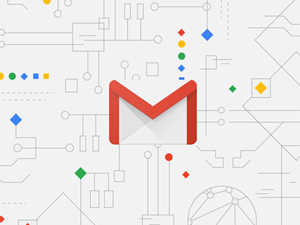



Date:07/02/19
 With last week’s Google Material Theme, Gmail for Android added the bolder “dangerous” warnings first introduced on the web. Powered by machine learning, Google today shared how it is leveraging TensorFlow to block 100 million additional spam messages every day.
With last week’s Google Material Theme, Gmail for Android added the bolder “dangerous” warnings first introduced on the web. Powered by machine learning, Google today shared how it is leveraging TensorFlow to block 100 million additional spam messages every day.
Google already uses machine learning and rules-based protections to prevent over 99.9% of spam, phishing, and malware from reaching inboxes. The latest measures leverage TensorFlow to block around 100 million additional spam messages every day.
The open-source ML framework also developed by Google is specifically being used to target the .1% of spammers that “slip through” Gmail’s existing protections. At a high-level, machine learning helps identify patterns in larger sets of data that may not be immediately apparent to humans.
ML-based protections help us make granular decisions based on many different factors. Just because some of an email’s characteristics match up to those commonly considered “spammy,” doesn’t necessarily mean it’s spam. ML allows us to look at all of these signals together to make a determination.
Meanwhile, machine learning also helps offer personalized spam protections to account for users’ differing perceptions of what is spam, like newsletter subscriptions or regular, consistent notifications from an app or service.
TensorFlow is credited with helping quickly evaluate new models and monitor training pipelines. As a result, the Gmail team can “focus less on the underlying ML framework” and spend more time refining models and catching spam.
TensorFlow also gives us the ability to easily train and experiment with different models in parallel to develop the most effective approach, instead of running one experiment at a time.
Gmail leveraging TensorFlow to block 100 million more spam messages every day
 With last week’s Google Material Theme, Gmail for Android added the bolder “dangerous” warnings first introduced on the web. Powered by machine learning, Google today shared how it is leveraging TensorFlow to block 100 million additional spam messages every day.
With last week’s Google Material Theme, Gmail for Android added the bolder “dangerous” warnings first introduced on the web. Powered by machine learning, Google today shared how it is leveraging TensorFlow to block 100 million additional spam messages every day.Google already uses machine learning and rules-based protections to prevent over 99.9% of spam, phishing, and malware from reaching inboxes. The latest measures leverage TensorFlow to block around 100 million additional spam messages every day.
The open-source ML framework also developed by Google is specifically being used to target the .1% of spammers that “slip through” Gmail’s existing protections. At a high-level, machine learning helps identify patterns in larger sets of data that may not be immediately apparent to humans.
ML-based protections help us make granular decisions based on many different factors. Just because some of an email’s characteristics match up to those commonly considered “spammy,” doesn’t necessarily mean it’s spam. ML allows us to look at all of these signals together to make a determination.
Meanwhile, machine learning also helps offer personalized spam protections to account for users’ differing perceptions of what is spam, like newsletter subscriptions or regular, consistent notifications from an app or service.
TensorFlow is credited with helping quickly evaluate new models and monitor training pipelines. As a result, the Gmail team can “focus less on the underlying ML framework” and spend more time refining models and catching spam.
TensorFlow also gives us the ability to easily train and experiment with different models in parallel to develop the most effective approach, instead of running one experiment at a time.
Views: 390
©ictnews.az. All rights reserved.Similar news
- Azerbaijani project to monitor disease via mobile phones
- Innovative educational system to be improved under presidential decree
- NTRC prolongs license of two TV and radio organizations for 6 years
- Azerbaijan establishes e-registry for medicines
- Azerbaijani museum introduces e-guide
- Nar Mobile opens “Nar Dunyasi” sales and service center in Siyazan city
- International conference on custom electronic services held in Baku
- OIC secretary general to attend COMSTECH meeting in Baku
- Azerbaijan develops earthquake warning system
- New law to regulate transition to digital broadcasting in Azerbaijan
- Azerbaijani State Social Protection Fund introduces electronic digital signature
- Intellectual traffic management system in Baku to be commissioned in December
- Tax Ministry of Azerbaijan started receiving video-addresses
- World Bank recommends Azerbaijan to speed up e-service introduction in real estate
- Azerbaijan to shift to electronic registration of real estate





















